Calling All Foodies! Barcelona’s Food and Beverage Sector is Hungry for More
13 nov 2019
6 min
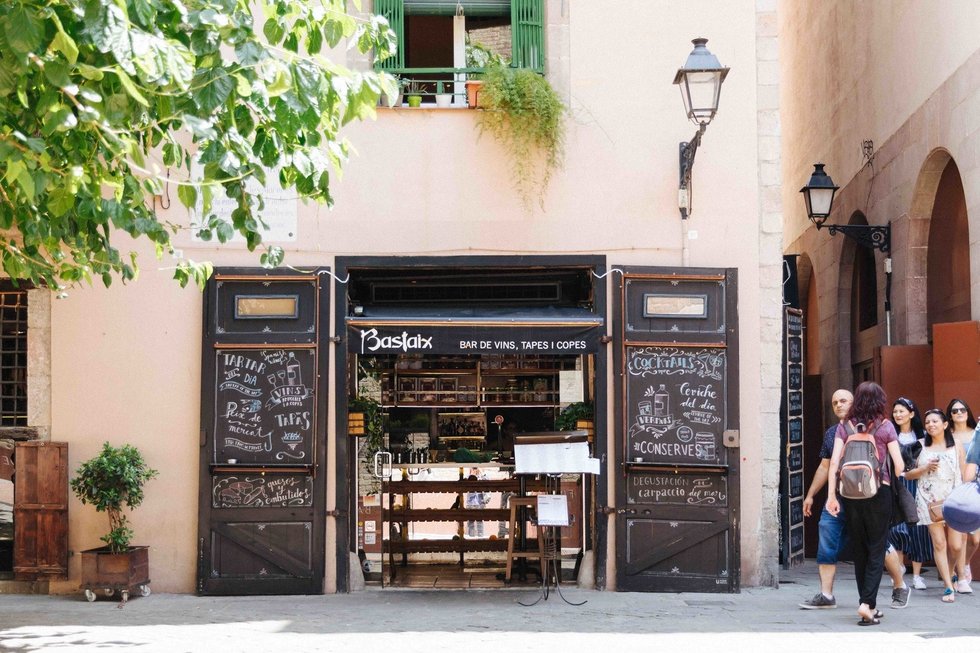

I’m an American expat who has been in Spain for 7 years while teaching English, writing and traveling.
Barcelona is acclaimed for its exquisite cuisine and fine wines, and for being a top destination for foodies from all around the world. It should come as no surprise, then, that the city is also a powerhouse in Spain’s food and beverage sector as a whole, with a flourishing job market to support it. And while the delicious offerings are naturally the stars of the show, there are a lot of other factors contributing to the Catalan capital’s position at the top, including its location, geography, resources, and economic growth. It’s no wonder the city if finding itself at the forefront of this booming industry and attracting talent from across the globe looking to get a piece of the professional action.
What’s been happening
Catalonia
Food and beverage seems pretty straightforward, right? However, in this industry, all of the steps, from the earliest stages of production all the way through to the sale of the finished product, are key to its success. This recent snapshot of the sector by Acció, an affiliate of the Generalitat de Catalunya and Catalonia Trade & Investment, paints a really good overview of what the whole industry entails. It states: “The food and drink industry encompasses the entire value chain, from the raw materials and equipment suppliers, through the network of stakeholders involved in developing, producing, processing, packaging, distributing and selling food and beverages, and on to the final consumers.”
According to the same report, the EU is the top exporter of food and beverages in the world. Spain ranks fifth in turnover within the EU, accounting for 9.6% of Europe’s food and beverage production and distribution. Getting more local, the industry represents the largest economic sector in Catalonia, with Barcelona being the center of it all. The city is well connected by sea, air, and land to export products, mostly to France, Italy, and Portugal, and the main clusters in the industry in Catalonia are meat, aquaculture, wine and cava, foodstuff packaging and machinery, food service, and Catalonia Gourmet (a group of 50 gourmet-food producers from the region), according to a report by Barcelona City Council. In fact, this industry, across all stages of production, is so important in Catalonia that it accounts for more than 37% of all jobs created in this sector in Spain as a whole.
Barcelona
As the capital of Catalonia, Barcelona plays a vital role in the food and beverage industry of the region. Thousands in the business flock to the city’s biannually held Alimentaria trade show and expo: In 2018, 4,500 companies participated, drawing in more than 150,000 professional visitors from around the world. The show’s aim is to analyze trends in the industry and to bring together business opportunities across a variety of categories. Barcelona is also home to Ibérica, a top platform in the Spanish food and beverage industry that holds expo events and industry awards, and helps to push marketing initiatives and trade shows. Ibérica reports that the industry has been consistently growing since 2016, making room for more job opportunities along the way.
Additionally, the city gives hopefuls in the industry opportunities that might not be possible elsewhere. Rishabh Lohia is the CEO and founder of Delhicioso!, a lunch-delivery and catering service that brings international cuisine directly to your office. Lohia has been in Barcelona for three years, and before that was working in Delhi, India. “Spain is currently going through an evolutionary phase, where acceptance of the new and different is being welcomed,” he tells us. He likes Barcelona being the base for his food service, adding, “being small and metropolitan, this city makes working and living very comfortable. A very connected and international network of people and infrastructure make opportunities more accessible.”
“A very connected and international network of people and infrastructure make opportunities more accessible.”
Andrés Carrasco is another entrepreneur who chose Barcelona as the home for his new food and beverage business. He is the co-owner of CocoVail Beer Hall, an American-style bar that is popular with locals and expats that opened in August 2016. When asked about what it takes to work in this industry in Barcelona, he says, “You need to be a social person, to love people and what you do in order to succeed in such an intense industry. It requires long hours, and to ‘be there’ all day, every day, especially during the first couple of years.” Carrasco has also found that his previous experience in a completely different part of the world has been a big help in getting set up in Barcelona, running a successful business, and achieving a great work/life balance. “I lived for nine years in the United States, both studying and working. I totally engage in American culture when it comes to work and business ethics, and I try to apply the same here. As a Spaniard, I love my country’s social culture but also love the American work ethic, so I try to combine them to create a balance, not only for the business but also in my personal life.”

- The rise of food tech
The food and beverage industry is seeing exciting changes and trends happening in Barcelona at the moment, which is leading to the opening up of new jobs and career paths. One really interesting new area of development is food tech, something that can be defined in two ways.
According to Digital-me-up.com, this area is a “new kind of business that comes from the alliance between technology available around us and the food sector.” It is a response to the way we eat and think about food, or how we can get our food.
Start-ups such as Glovo, Just Eat, and Deliveroo have created apps where users can order from their favorite restaurants and have delicious meals delivered right to their door. Glovo, whose headquarters are here in Barcelona, has expanded exponentially since its launch in 2015 and now has a presence in 24 countries. Trybe, meanwhile, is an app that allows aspiring chefs to show off their culinary creations and lets users order dishes from them. And according to Bloomium.com, during the past five years, the top five European start-up food-delivery apps have received almost half the investment that’s been made in food tech in Europe, worth €3.1 billion—Glovo alone was valued at €115 million in 2018.
Food tech can also be defined as the development of new food products and materials. For instance, companies such as Foods for Tomorrow are working toward creating a more sustainable future by producing meat substitutes that are healthy for the body and planet. Another astounding development in this sphere comes in the form of Natural Machines’ latest gadget—the Foodini. Food tech is changing the way we eat and live, as well as the industry for those involved.
Where it’s at
Jobs in the restaurant industry are available all across the city and aren’t particularly concentrated in one area. However, the most common openings, such as for servers, bartenders, and other food-service roles, will naturally be found in places with high levels of tourism—these two sectors go hand in hand in Barcelona and are two pillars of the local economy. The areas where tourism is most concentrated are found downtown and include El Raval, Ciutat Vella, Gràcia, El Born, and L’Eixample.
As is the case with many of the city’s start-ups, the food-tech hub is found in 22@, the former industrial area of El Poblenou, which is now a mecca for innovation and creativity in Barcelona. Indeed, this zone is a hot spot for all things tech, including the development of new food-delivery apps and platforms, along with new foods or machinery that are changing the way we shop, cook, and eat.

What to Expect
The average salary in the food and beverage sector largely depends on the role you fill and your skills and experience, as the below examples show. And while the minimum wage in Spain for a full-time worker is €1,050 a month, Barcelona is one of the cities with the highest wages in the country.
Hospitality
Jobs that are commonly searched for in the restaurant industry include line cook, kitchen staff, inventory manager, food-service sales, food consultant, restaurant manager, server, bartender, and cocktail server, which are needed in all areas of the city. Opportunities don’t stop there, however: Chefs, entrepreneurs, visionaries, and more come to Barcelona to be a part of this thriving market, too.
Jordi Mestre is the founder and co-owner of Nomad, a specialty coffee shop in Barcelona. He recently shared his thoughts about working in this industry in Barcelona over the past few years. “It’s a great sector and has grown so much in five years, from there being no specialty cafes at all to a real booming of business.” Mestre also notes the challenges of working here compared to London, where coffee culture is better established. “It’s different because it was a whole new product and concept, and it was difficult at the beginning to introduce it here in Barcelona. I previously lived and worked in London, where the customers were more up for a good coffee and also happy to pay a little bit more.”
Food Tech
Working in food tech opens many doors as well. Since many of these companies are start-ups, account, product, and office managers are very much in demand. This sector depends on apps and technology, so engineers and developers are also needed. These jobs are much better paid than working in the restaurant industry, and successful applicants can easily earn upward of €30,000 a year. A full stack developer can start out earning about €32,000, while an app developer makes €30,252 a year, and a marketing manager to promote food-tech products and campaigns averages €40,859.

Production
Distribution and sales play their part in food and beverage, too. A supply-chain manager in Barcelona can earn €43,746 a year, while distribution managers and sales executives are also needed in this field, especially with the aim of forming international sales.
The Takeaway
Barcelona is a leader in the food and beverage industry and offers a variety of jobs that can provide a path to an exciting and fruitful career. It’s a sector that’s showing no signs of slowing down, making it a large part of the country’s economy. So, if you’re wondering where to relocate if you want to work in this industry, all the advantages that Barcelona has to offer make it an easy choice!

Más inspiración: Work in Barcelona
Moving to Barcelona for work? Navigate the job jungle in this international hub with our insider tips, advice from locals and insights from industry experts.
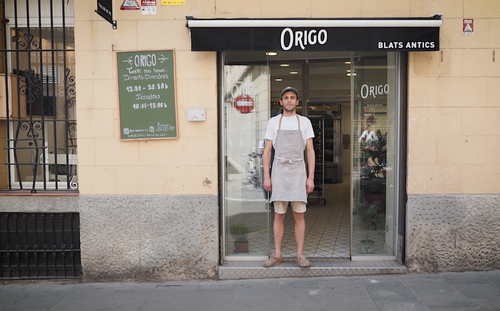
Work in Barcelona: François
Originally from Belgium, he left his job at Google in San Francisco to move to Barcelona with his wife, where he decided to open his own bakery.
11 dic 2019
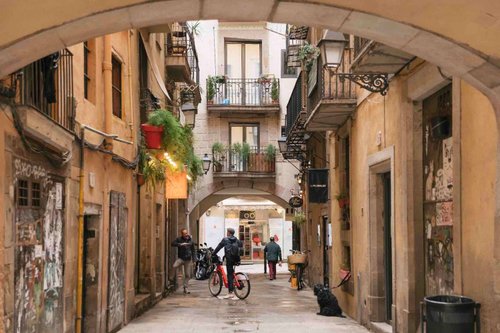
Work in Barcelona
Considering relocating to Barcelona? Let’s have a look behind the scenes to understand what it takes to be a happy expat in Barcelona.
11 dic 2019
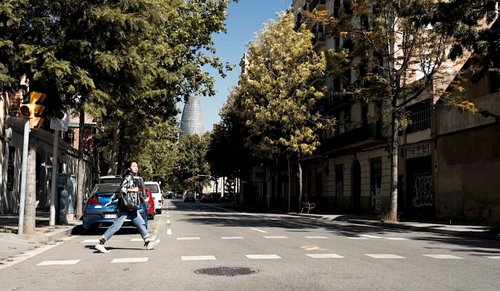
Work in Barcelona: Amy
Born and raised in Canada, Amy moved to Barcelona to change career by retraining as a software developer. Here's her expat experience of the city.
11 dic 2019

My Barcelona: ‘The city is so much richer than it seems’
For Anaïs, Barcelona is such an enticing city that she has made it her home not once, but twice.
13 nov 2019
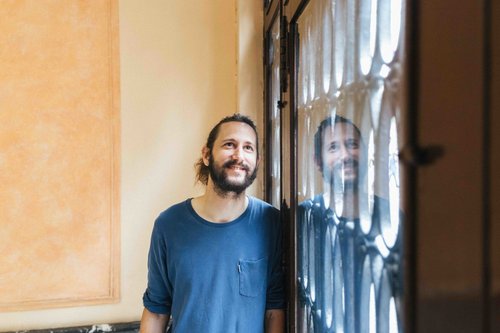
My Barcelona: ‘It’s the Silicon Valley of Europe’
Frenchman Erwan Riou originally qualified as an architect, but after a stint in Brazil, the 33-year-old started retraining as a programmer...
13 nov 2019

¿Estás buscando tu próxima oportunidad laboral?
Más de 200.000 candidatos han encontrado trabajo en Welcome to the Jungle
Explorar ofertas